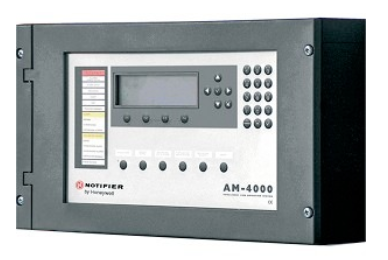Difference between revisions of "Notifier"
| Line 97: | Line 97: | ||
== User Interface == | == User Interface == | ||
| − | |||
| − | |||
| − | |||
| − | |||
| − | |||
=== UISET Actions === | === UISET Actions === | ||
| Line 114: | Line 109: | ||
=== USER Commands === | === USER Commands === | ||
| − | + | You can use the [[user]] object, or any other GUI object that generates user events, to execute any command that could be sent writing to a data point, as defined in the Datapoints table. Set the user object’s name field to the datapoint (event) name, prefixed by the IO Server id, and its param field to the value that should be written to execute the command. | |
| + | |||
| + | For example, to disable zone 1, use the following object: | ||
| + | |||
| + | (user fire.zone.1.disabled; 1; r4c2; gr; zone 1 off) | ||
| + | |||
| + | To enable zone 1: | ||
| − | + | (user fire.zone.1.disabled; 0; r4c3; gr; zone 1 on) | |
| − | |||
| − | |||
| − | |||
| − | |||
| − | |||
== Release Notes == | == Release Notes == | ||
Revision as of 16:00, 18 March 2014
The NOTIFIER AM-2000, AM-4000 and AM-6000 are multi-area fire panels. The integration with HSYCO can be accomplished via a standard Modbus RTU slave interface.
Contents
Communication
The NOTIFIER SIB 600 Modbus interface is required. The default connection parameters are:
Modbus address: 1 (can be set to 1-32)
RS-485 parameters:
| Baud rate | 9600 |
| Data bits | 8 |
| Stop bit | 1 |
| Parity | none |
| Flow control | none |
Refer to the Notifier manuals for installation, wiring and power supply requirements.
HSYCO Configuration
Options
| ID | Default | Values | Description |
|---|---|---|---|
| address | 1 | 1 ... 32 | the panel’s Modbus address |
| gui | true | true | enable support for the UI object, UISET actions and USER commands |
| false | disable UI support | ||
| startupevents | false | true | generate IO events also during the driver’s start-up phase |
| false | start generating events only after HSYCO is aligned with the current status of the system | ||
| pollinterval | 1 | > 0 | set to the highest zone number configured in the panel. Set to 0 to disable zone status polling and control commands |
| lastzone | 150 | 0 ... 150 | set to the highest zone number configured in the panel. Set to 0 to disable zone status polling and control commands |
| loglines | 100 | ≥ 0 | if GUI support is enabled, set to the maximum number of lines to show in the log text object. Set to 0 to disable the GUI log |
Datapoints
| ID | Value | R/W | Description |
|---|
User Interface
UISET Actions
You can use any object that accepts a text attribute, usually text, but also marquee and others, to display the status of the system according to the following table:
USER Commands
You can use the user object, or any other GUI object that generates user events, to execute any command that could be sent writing to a data point, as defined in the Datapoints table. Set the user object’s name field to the datapoint (event) name, prefixed by the IO Server id, and its param field to the value that should be written to execute the command.
For example, to disable zone 1, use the following object:
(user fire.zone.1.disabled; 1; r4c2; gr; zone 1 off)
To enable zone 1:
(user fire.zone.1.disabled; 0; r4c3; gr; zone 1 on)
Release Notes
| ID | Attribute | Set to | |
|---|---|---|---|
